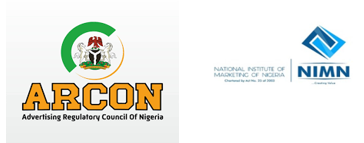
Akin Fadeyi Foundation holds media stakeholders on inclusive governance
By Abimbola Mohammed
Akin Fadeyi Foundation (AFF), Nigeria’s foremost public accountability non-profit organisation, at the recently held global virtual summit canvassed empowerment of women as a proactive way to ensuring inclusive governance at different tiers of government.
Speakers after the other at the global event condemned present arrangements in some African countries for not respecting the United Nations’ (UN) affirmative action.
Affirmative action, according to United Nations is a set of procedures design to eliminate unlawful discrimination among applicants, remedy the results of such prior discrimination, and prevent such discrimination in the future.
Speaking at the media conversation, Mr. Akin Fadeyi, Executive Director, Akin Fadeyi Foundation While calling for more women participation in politics, he reminded women to rise up and fight for it. The foundation also unveiled a competition ‘What women can do’, where women can pitch for business ideas and win gifts.
“Why are women in Nigeria taking the backstage, what happened to the vibrant strong culture of political participation by Nigerian women? Why is it that from 1999 till date when we have one hundred and nine houses of representative members we’ll have just three women in the house and at the senate, we’ll have just eight women? Why is it that Nigeria signed affirmative action at the United Nations but the Nigerian government sued against it? Four things we should identify here: The growing voice of women in community work from various fairs of the country, there has to be an intentional wiliness of cultural restriction in our conception of what defines women into political participation and policy friendly.
“There is a need for expansion of activism of women organisations supporting increased participation of women in politics. We have to agree now; women should be allowed to take economic roles and shouldn’t bear the pain of weaker vessels.”
Lending his voice, Mr. Simon Kolawole who is also the Board Chairman, Akin Fadeyi Foundation noted that looking at what is happening in the political realm; Nigerians shouldn’t get discouraged by what they see because it is as if when we take one step forward in terms of gender inclusion we take several steps backward.
“That is why this conversation is very important so that we can begin to escalate the discussion so that those who are in power can act and do things better. We need to continue to speak collectively to their conscience and put them on this spot so that they realise that things shouldn’t be handled the way they are being done now.”
“It is quite sad that when many developed countries are already talking about gender parity and gender equity, we in Nigeria are still discussing gender inclusion. Especially in the political space when we look at the presidential race, there is no single woman as the presidential candidate compared to the last presidential election when we had five candidates although some of them withdrew from the race.”
He urged the Nigerian government to accommodate the 35% request for women in political party leadership and in appointive positions as women not only form about 49.5 percent of Nigerian population but many of them have capacity for positions. While the speakers suggested mentorship, especially among girls that will boost their confidence, aspiration, they recommended the jettisoning of stereotypes and the kind of socialisation at homes that diminishes the potential of a female child. And also women in Nigeria not to give up participating in politics even though the resources and structure may not be readily available.
In her presentation, Lillian Anomnachi, executive director, TA Connect funded by Bill and Melinda Gates said women are taking back seats because there has not been intentional action to include women.
“Women inclusion in governance starts from childhood. We need to have transformation actions that bring women issues to the front burner that take deliberate action on building the capacity of women. There should be a mentorship system for other women to look up to other women.”
According to Amina Salihu, Senior Programme Director, McArthur Foundation, Nigeria, politics for women does not start when they come to the public space to run for political positions, it starts when she is born a female which she said is conflicted with certain socialisation that diminishes the potential of a female child vis a vis a male child.
She therefore said gender inclusive governance will depend on the way society raises daughters and sons. “We must raise them to be equals of each other. Boys need to recognise that if they can eat, they can cook so that we demystify socialization.”
Bamidele Ádemola Olateju, Commissioner for Information and Orientation, Ondo State urged women to use every opportunity to fight for gender responsive governance and put at the front burner every issue affecting women.
In his submission, Chido Onumah, Coordinator of the African Center for Media and Information Literacy, argued that the media has not done enough in promoting gender inclusion stating that the media reporting of women is a reflection of the society.
Saudatu Mahdi, Executive Director, Women Rights Advancement and Protection Alternative agreed that women need to close ranks to achieve results.




Comment
No comments found.